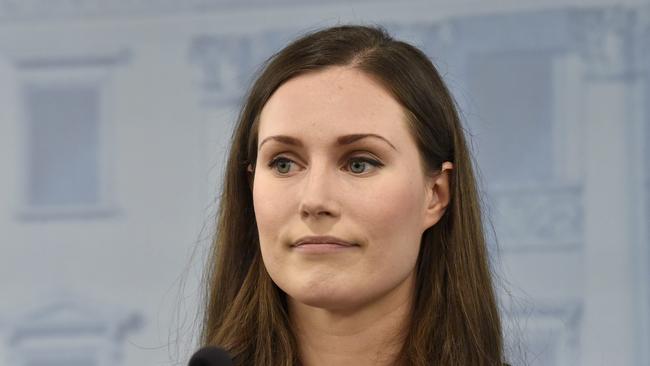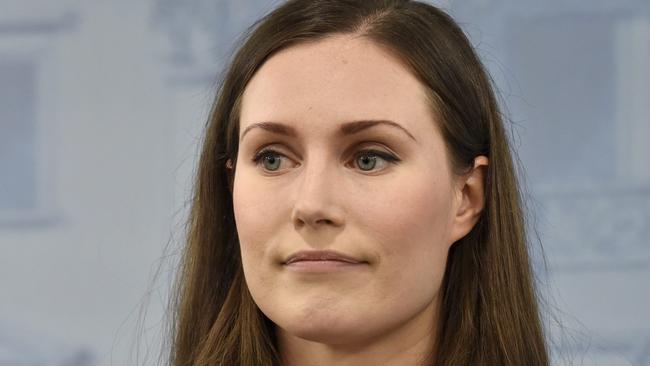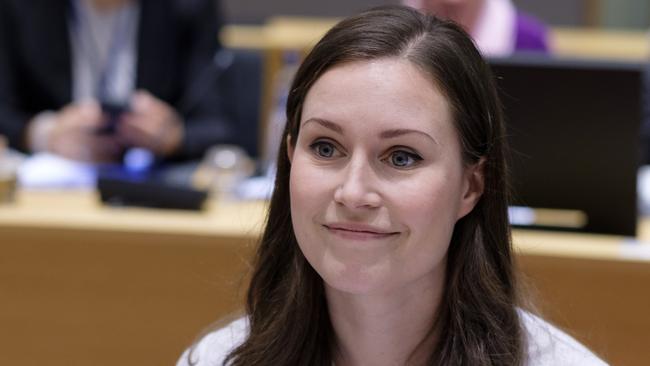Four-day working week and six-hour shifts set to be introduced in Finland
Ask any millennial what they want from work and most will say they want a shorter week – fortunately the world’s youngest PM is listening.

Leaders
Don't miss out on the headlines from Leaders. Followed categories will be added to My News.
Finland’s prime minister is not even six months in the job but is already looking to rapidly shake up the workforce in the country.
Sanna Marin, 34, came into the top job not even a month ago on December 9 following the resignation of the previous PM.
Upon accepting the role, Ms Marin became the world’s youngest sitting prime minister and is believed to the be the youngest-ever female prime minister too.
Her proposal would allow workers to enjoy a three-day weekend and six-hour days so they can spend more time with friends and family.
Ms Marin, the leader of the country’s Social Democratic Party, and the four others that make up the coalition government, has demanded a test run of the new working schedule to coincide with the 120th anniversary of the Social Democratic Party.

“I believe people deserve to spend more time with their families, loved ones, hobbies and other aspects of life, such as culture,” she told the New Europe Newspaper.
“This could be the next step for us in working life.”
Currently most Fins follow the same work pattern as Australians are used to, working eight hours a day for five days a week.
“A four-day workweek, a six-hour workday. Why couldn’t it be the next step? Is eight hours really the ultimate truth?” Ms Marin said.
Already Ms Marin’s critics have said the idea would damage businesses and economic growth, but education minister and leader of the Left Alliance, Li Andersson, has welcomed the proposal.
The Mail Online reported that Ms Andersson said it was an important lifestyle decision to allow Fins to work less.
“It is important to allow Finnish citizens to work less. It is not a question of governing with a feminine style but offering help and keeping promises to voters,” Ms Andersson said.

The move would make Finland the latest Nordic country to embrace a shorter working week.
Sweden has been trialling a six-hour day since 2015 with results already showing that employees are happier, wealthier and more productive.
It’s not just Nordic countries that are taking notice of the benefits of a shorter work week.
In 2015, an Australian study found that 26 per cent of all employed people would prefer to work fewer hours, and one company decided to take the next step and implement it.
Australian digital marketing company Versa is trialling a no-Wednesday policy after its CEO Kath Blackham introduced a four-day work week that allows employees to take every Wednesday off work.
“The whole idea of a four-day week is to give people the opportunity to get healthy again and catch up on sleep and exercise,” she told news.com.au.
Even Australia’s neighbours in New Zealand are working towards a shorter work week.
Perpetual Guardian, a financial services company based in Auckland, trialled a four-day work week that was monitored by academics.
The academics at the University of Auckland and Auckland University of Technology found that productivity increased by 20 per cent and staff felt less stressed and more stimulated.
Work-life balance increased from 54 per cent to 78 per cent and stress levels dropped from 45 per cent to 38 per cent.
Currently, a four-day work week is not a nationwide policy for either Australia or New Zealand.
Originally published as Four-day working week and six-hour shifts set to be introduced in Finland
